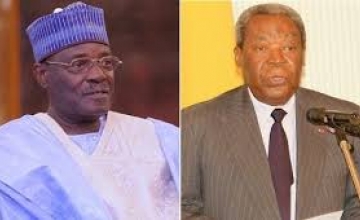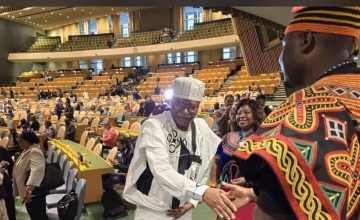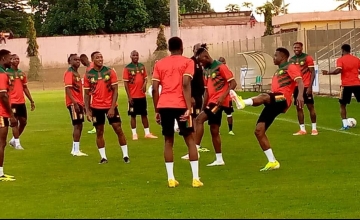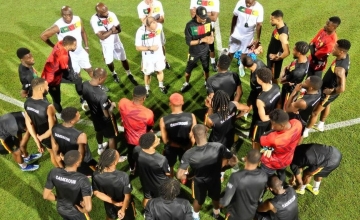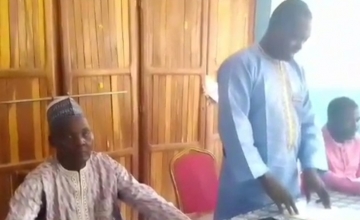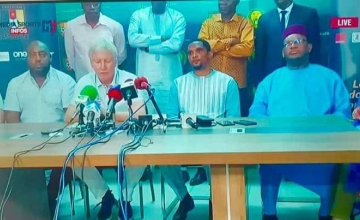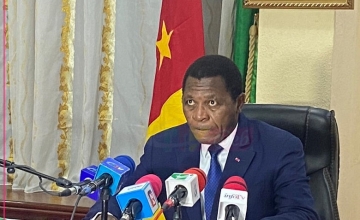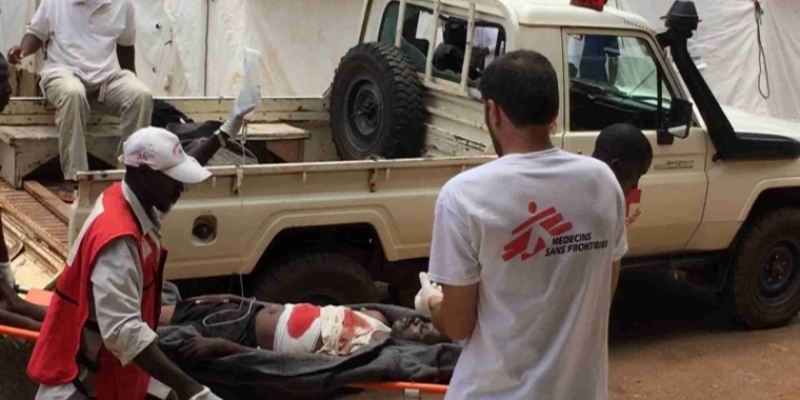
The humanitarian worker, Felix, was reportedly kidnapped on Thursday, July 9, 2020, and killed the next day, Friday, for allegedly collaborating with government forces.
“We were notified of his killing through an official statement by separatists,” Doctors Without Borders said in a statement on Saturday. “As members of Doctors Without Borders, we are shocked and deeply saddened by the news of the killing of a community health worker who was supported by our organization in South-West Cameroon. We offer our deepest condolences to his family and community.”
Doctors Without Borders insist that they are an independent humanitarian organization that provides medical care to those most in need, regardless of their religious, political and cultural background. They thus condemn the killing of someone who was providing health care to his community, with the support and under the supervision of Doctors Without Borders.
“His death is an example of the ongoing violence in the North-West and South-West region, where attacks on healthcare workers and hospitals are a regular occurrence. We urge all parties to ensure the safety of healthcare workers, hospitals, ambulances and patients,” Saturday’s dispatch read in part.
Last month, armed separatists kidnapped Paul (not his real name), a humanitarian worker, in Cameroon’s English-speaking North-West region on Saturday. They accused him of being a spy, tied him up to a tree, and savagely beat him before releasing him a day later, Human Rights Watch said.
That same day, separatists also abducted seven staff of the Cameroon Baptist Convention Health Services, a faith-based non-profit in Bambui, North-West region. They were released two days later, said Ilaria Allegrozzi, Senior Central Africa Researcher, Human Rights Watch.
These two recent attacks are just examples of a long line of incidents in which aid workers have been attacked by English-speaking separatists fighting Cameroon’s military.
But like Allegrozzi observes, separatists are not the only ones responsible for the attacks against aid workers and humanitarian operations that have been commonplace since the crisis began in late 2016, becoming an armed conflict in 2017.
“Government forces also bear responsibility. Aid workers have been victims of unlawful killings, abductions, harassment, extortion, and other abuses as supplies and property have been looted and destroyed. Humanitarian access has been severely hindered by the violence, as well as by deliberate actions carried out by the separatists and government forces and authorities,” said Allegrozzi.
The United Nations Humanitarian Coordinator in Cameroon, Allegra Baiocchi, expressed grave concern over the interruption of aid delivery to hundreds of thousands of people in need, following the escalating trend of attacks against humanitarians.
Cameroon’s Anglophone regions face a serious humanitarian crisis, with over 650,000 internally displaced, and 1.8 million relying on humanitarian aid including 1.4 million people who lack reliable access to food, according to open sources.
The UN Security Council on July 1 echoed the Secretary-General’s call for a worldwide ceasefire, to combat the coronavirus pandemic that has already claimed more than half a million lives. The UN chief welcomed the long-awaited move, calling for countries to "redouble their efforts for peace".
As government and jailed separatists are said to be having backdoor talks to obtain a ceasefire deal, some eight International Nongovernmental Organisations delivering humanitarian assistance to crisis-affected populations in North-West and South-West regions are appealing for unrestricted access.
In view of the humanitarian response, the INGOs say they remain committed to deliver humanitarian assistance to all civilian populations affected by the on-going crisis based on need and without discrimination, in order to save lives.
Action Against Hunger, Care, Catholic Relief Services, the International Rescue Committee, Intersos, the Norwegian Refugee Council, the Danish Refugee Council and Plan International in a statement on Monday said they “are strongly committed to do so in full compliance with our mandates which are based on the four humanitarian principles of humanity, impartiality, neutrality and independence. Those principles guide our action for the entire benefit of the civilian populations and thus in full independence and neutrality from political or military objectives.
“At a time when the COVID-19 pandemic is spreading in these two regions, unrestricted access to populations is of ultimate importance to carry-out life-saving interventions to more than 700,000 people in need of immediate humanitarian assistance.
“We reiterate that the principles of humanitarian action: humanity, impartiality, neutrality and independence govern the way humanitarian response is carried out by NGOs. We do call on all parties and stakeholders to maintain and facilitate swiftly our access to all affected populations across these regions in order to save civilian lives and recall that humanitarian staff and personal must be protected in all circumstances, in accordance with international humanitarian laws.
“Humanitarian workers play a vital role, often operating in difficult conditions to alleviate suffering. Government forces and all separatist armed groups should immediately end all attacks against humanitarians and other civilians, hold those who commit them to account, and allow unhindered humanitarian access.”
The killing of a humanitarian worker in Kumba by separatists has cast dark clouds over the fate of thousands who depend on lifesaving support from aid groups.
Doctors Without Borders has been present in Cameroon for more than 30 years, and in the South-West and North-West regions since 2018. Their main objective is to reach communities who have difficulty accessing health care and who are most in need.
They say one of their strategies is to train and support members of the community to diagnose and treat simple diseases given that community health workers are vital for ensuring that vulnerable communities have access to medical care, and their protection needs to be guaranteed.
Doctors Without Borders announced June 12 its decision to suspend activities and withdraw from Mamfe, capital of Cameroon’s Manyu Division, South-West Region. The withdrawal is attributed to restrictions occasioned by COVID-19, the disease caused by the novel coronavirus, as well as the inadequacies in equipment and personnel.

